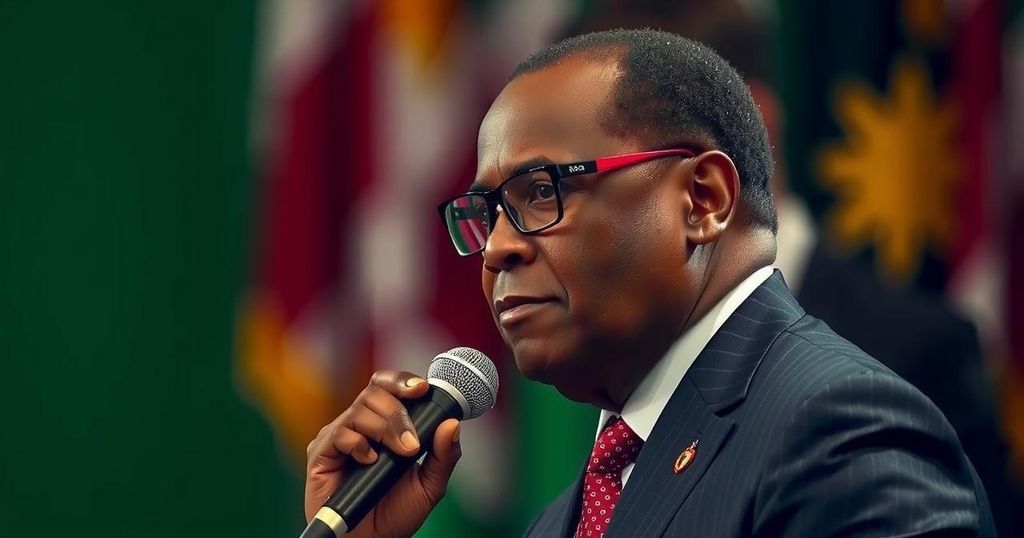Historic Impeachment of Kenya’s Deputy President Rigathi Gachagua

Kenya’s Deputy President Rigathi Gachagua has been impeached by the Senate on five charges after a favorable vote from the National Assembly. Gachagua, hospitalized during the trial, denied all allegations claiming political conspiracy. This act marks Kenya’s first deputy presidential impeachment under the current constitution and poses a challenge to President Ruto, who must now appoint a new deputy.
In a groundbreaking political development, the Deputy President of Kenya, Rigathi Gachagua, has been impeached, marking a significant moment in the nation’s history. The Senate, after reviewing the case against him, voted to remove Gachagua from office, approving five out of the eleven charges leveled against him, including gross constitutional violations and threats against judicial officials. Gachagua did not attend the hearing due to a medical emergency— being hospitalized for chest pains. This parliamentary upheaval follows Gachagua’s collaboration with President William Ruto during the 2022 elections, which brought him into power. The suspension of Gachagua not only reflects internal schisms within the ruling party but also raises questions about the political future of leadership in Kenya. The National Assembly had previously voted overwhelmingly for his impeachment, setting the stage for this unprecedented Senate trial. Gachagua, having labeled the charges against him as “nonsensical” and indicative of betrayal, may legally challenge the Senate’s decision following the completion of parliamentary proceedings. While waiting to appoint a new deputy, President Ruto has various candidates in consideration, as the nation watches closely for further developments in this unstable political landscape.
The impeachment of Deputy President Rigathi Gachagua signifies a transformative moment in Kenya’s political framework, particularly since it is the first instance of such an event under the 2010 constitution. Gachagua’s tenure has been marred by allegations of corruption, abuse of power, and a deteriorating relationship with President Ruto. The complexities surrounding this impeachment involve significant charges like judicial threats and ethnically divisive conduct. The absence of criminal proceedings remains notable, permitting Gachagua to contest the Senate’s ruling through legal means. The impeachment process has navigated through significant parliamentary procedures, emphasizing its historical relevance within Kenyan governance.
The impeachment of Rigathi Gachagua as Deputy President underscores deep political rifts within Kenyan leadership and reflects a crucial shift in the nation’s democratic processes. With serious charges filed against him and his unavailability to defend himself during the Senate trial, the political landscape of Kenya stands at a precipice as President Ruto prepares to appoint a successor amidst rising tensions and public dissent. This unprecedented political development not only raises questions about the integrity and stability of Kenya’s democratic institutions but also prompts discussions about the broader implications for governance as the nation moves forward.
Original Source: www.seychellesnewsagency.com







